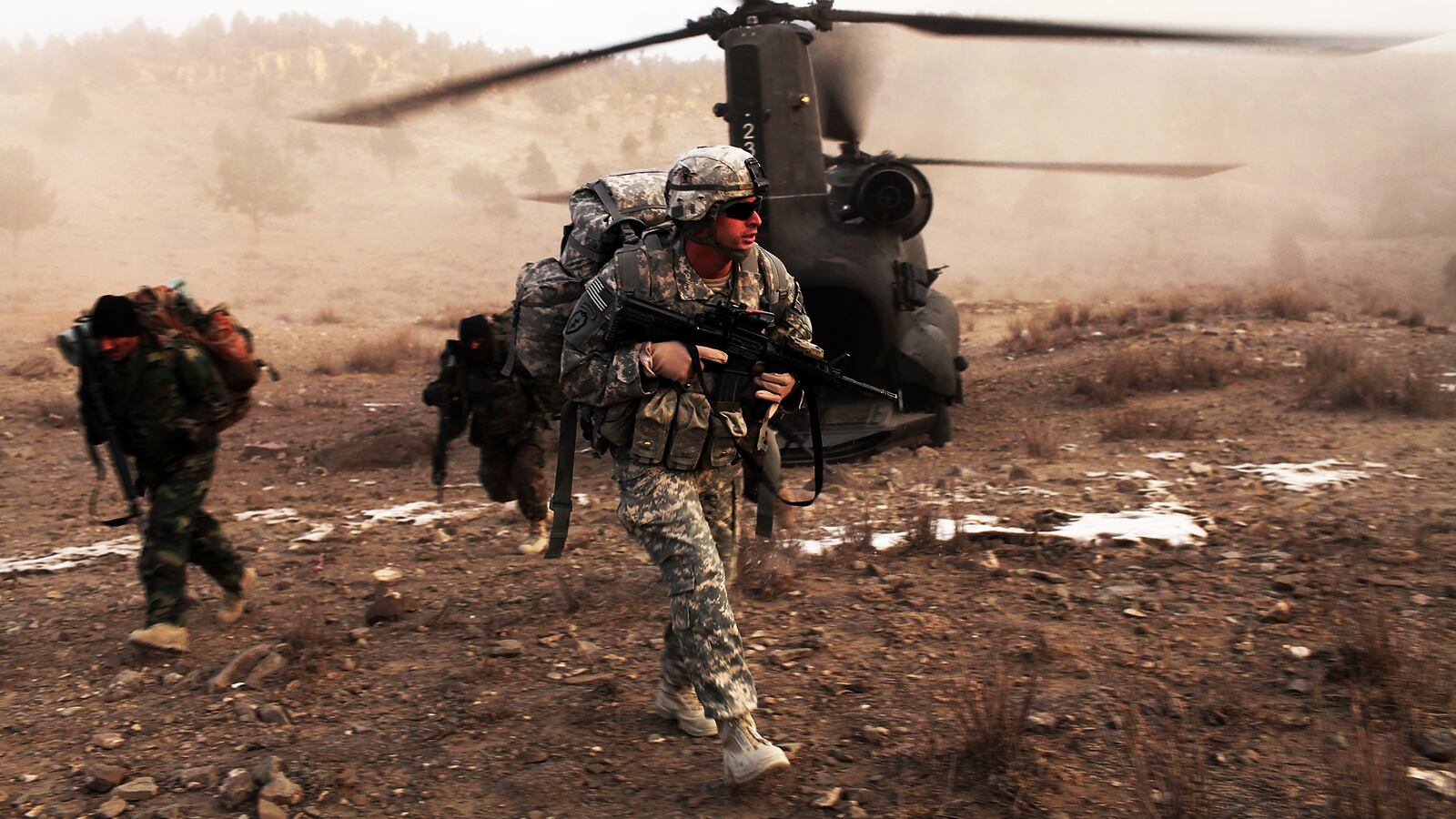Things were bad when we arrived in Kuduz during my second deployment to Afghanistan, in 2010. The Taliban controlled everything up to the roads. Our partners in the Afghan National Security Forces (ANSF) were demoralized and unenthusiastic about shooting it out with the more numerous and enthusiastic Taliban militias in the area. Week after week, month after month, we kept at it, fighting against the Taliban until, with a few months to go in what turned out to be an 11-month deployment, a group of 17 Taliban surrendered. They were tired of fighting us, they said; they hadn’t been paid and were out of ammunition. A couple weeks later, 80 more Taliban fighters turned themselves in.
To take advantage of this momentum, we planned a mission to drive the Taliban out from the province altogether. And for a week in January 2011 that’s exactly what happened. The ANSF did all the fighting. After that battle, with the Taliban gone or having switched sides, we were able to walk or drive pickup trucks through our area without fear of attack. We even attended a Buzkashi match as hosts of our partner, the local chief for the Afghan National Police. It had been months of work with little to show for it, followed by a sudden breakthrough and a total change of the political landscape.
At the time, that felt to me like the same way that the U.S. would finally be able to hand things off to the ANSF, and the ANSF would then be able to secure their country for the government. But, as we saw this week, it was the ANSF and the government that were broken through by the Taliban. With the benefit of hindsight, it seems more likely that what I saw in 2010 was an essential part of Afghanistan itself: how the country and culture survive the foreign ideas and nations that regularly sweep over it before receding.
That was not clear to me when I was in Afghanistan. I think the Afghanistan I was living in, which is the Afghanistan many Americans perceive or discuss to this day when they talk about things like cowardice or dishonor among the ANSF, was actually a vibrant fantasy world on par with that of Westeros or Middle Earth. Our Afghanistan, which resembled America in some senses, was a country where people fought to the death for their ideas, like we did in World War II.
Many Americans shared in the mass delusion: the people I deployed with, military leadership, the commentariat and political leaders. I don’t think many Afghans were taken in by the lie. Looking back on things, most of the Afghans I met used the lie opportunistically, as a way of getting something they wanted.
“There is a government of Afghanistan,” influential local politicians or military leaders would say, in deference to my connection to the lie, when we were meeting. “Hamid Karzai is its president.” I don’t blame the Afghans for this deception. Many Afghans died for the lie; far more of them have died (and will die) for the lie than Americans. It’s only right that some of them should have gotten something out of the arrangement.
For the Taliban’s part, they’ve been trying to communicate the truth to us since 2001. They’re savage and unethical, barbaric, cruel, and objectionable in every possible sense — religious extremists to boot, the worst kind of people (people, though, in spite of it all). Their having been right, and our having been lying to ourselves, doesn’t make the Taliban good people, or us bad people. It does mean their vision of the world was grounded in realism, and sober facts, and our vision in the U.S. and the West can now safely and with certainty be consigned to the bonfire, or repurposed as military or political fiction.
That’s the only way to explain how a country—excuse me, a lie—vanished in a week.
A similar, related explanation that’s nearly too terrible to consider is that the Taliban were secretly cultivating power and influence under our noses the entire time, spreading their vision and ways while we assumed we were in charge. Then, not only would we be liars, we’d also be fools.
We could send soldiers back to Afghanistan if we wanted. A lot of so-called experts and others are smugly nodding and saying “I said this would happen if we left” or “We have to go back” or “Abandoning the Afghan government is a betrayal.” A great many American servicemembers who have sacrificed or spilled blood or lost friends or family in Afghanistan over the last 20 years, and would do so again because if told to go we don’t ask why or how long, we pack their kit and deploy. But doing that would be a terrible idea and wouldn’t solve anything.
I want to make sure people understand that what we’d be going back to is a lie, and the Afghans and Taliban who are there in the real Afghanistan as opposed to our fantasy Afghanistan will keep nodding about that lie for as long as it takes for the United States of America, exhausted with perpetuating internal and external lies about what it is and why it does what it does, collapses in on itself and has to bring all its overseas soldiers home for good.
We’re not abandoning Afghanistan, because Afghanistan the way we meant it doesn’t exist. It never did.



